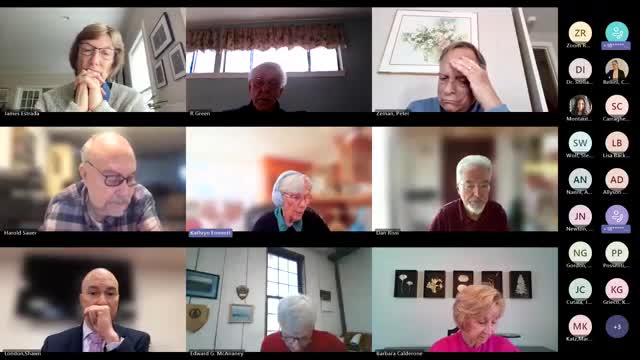Connecticut board rejects proposed consent order for telehealth prescriber Dr. Purdy
Get AI-powered insights, summaries, and transcripts
Subscribe
Summary
The Department of Public Health advisory board declined to approve a proposed consent order for Dr. Purdy, citing inadequate Connecticut-specific telehealth oversight, missing probationary controls, and a civil penalty the board considered too low; the matter returns to DPH for revision.
Chairman Emmett told the board he would vote against the consent order for Dr. Purdy because the proposal did not offer sufficient protections for Connecticut patients who may be prescribed medication via telehealth.
The chair said the Mississippi memorandum of decision that prompted reciprocal discipline showed Dr. Purdy prescribed medications without establishing a valid physician–patient relationship. "The current consent order as it stands doesn't give Connecticut residents and citizens the protections that they should have," Emmett said, and urged the board to require that Dr. Purdy provide the Department of Public Health with her telehealth standard operating procedures and added probationary oversight before prescribing to Connecticut patients.
Board members voiced similar concerns during discussion. Barbara Calderon said other states' actions against the physician should not be "glossed over," and Doctor Zeman and Doctor Green emphasized record-keeping and screening problems that can arise when telehealth interactions rely on questionnaires rather than a video or direct patient encounter.
Joelle Newton, attorney for the department, told the board the department would return to the respondent to discuss raising the civil penalty to $5,000 and adding probation, and that the consent order will reference Connecticut's telehealth statute to ensure compliance. "The department will go back to the respondent and discuss the $5,000 civil penalty as well as probation," Newton said.
When the board held a roll-call vote on the pending motion to approve the consent order, the motion failed; a majority voted against approving the order as presented. The chair said the consent order "will have to go back to DPH" for further revision.
Next steps: DPH will consult with the respondent about changes the board requested and may submit a revised consent order at a future meeting.
